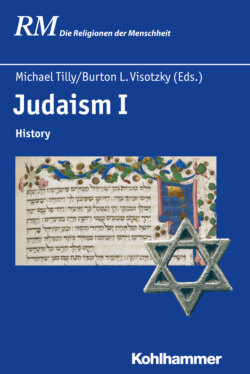Читать книгу Judaism I - Группа авторов - Страница 69
На сайте Литреса книга снята с продажи.
Egypt
ОглавлениеThe synagogue became a key factor in the preservation of Jewish identity in the Diaspora. The Egyptian diaspora became especially important in the third century BCE, but goes back much further. Already in the time of Jeremiah (ca. 645–580 BCE), we learn of a Jewish diaspora in Egypt (Jer 43:1–7). In the fifth century BCE, a Jewish military colony protected the southern border of Egypt on the island of Elephantine in the Nile, and a variety of Aramaic documents (marriage contracts, property transfers, loan agreements, freeing of slaves) provide an insight into their lives.110 The Jewish military colony had built a temple for their God Yahu. There were economic reasons for Jews to have emigrated to Egypt. In addition, there were deportations due to armed conflict. When Ptolemy I Soter took Jerusalem in 302 BCE, by subterfuge on the Sabbath—a day when the Jews offered no defense for religious reasons—he deported a large part of the population to Egypt. The second Ptolemy, Philadelphus, is supposed to have ordered a generous release of Jewish slaves abducted by his father, in which context the Letter of Aristeas mentions the exaggerated number of 100,000 (Pseudo-Aristeas 12). The so-called Zenon archive (mid-3rd cent. BCE) gives insight into everyday Jewish life and mentions, in addition to Jewish domestic slaves, free Jewish laborers of the lowest social level: vintners, shepherds, dog wardens, and brickmakers.111 Jewish identity is testified to in a brick invoice, which gives an exact account of delivery on individual days of the week, but indicates sabbata on the seventh day.112
There is evidence of synagogue buildings in Egypt from the latter third century BCE.113 We may take as an example the inscription of Shedia, from 246–221 BCE: »On behalf of king Ptolemy and queen Berenice his sister and wife and their children, the Jews (dedicated) the proseuche.«114 It is notable that synagogues in Egypt (and elsewhere in the Greek-speaking diaspora of the East)115 are generally called proseuche. Proseuche, »prayer,« here means the building or the place, or what takes place there: prayer. The term »synagogue,« on the other hand, became widely established in the land of Israel and in the western Diaspora. Martin Hengel116 explains the difference on the basis of the deliberate distinction in Judea between the Temple and the synagogue (»assembly [house]«).117 It might also be the case that the synagogue in the land of Israel developed from the assembly at the city gate and gained this name in line with the secular character of those assemblies.
